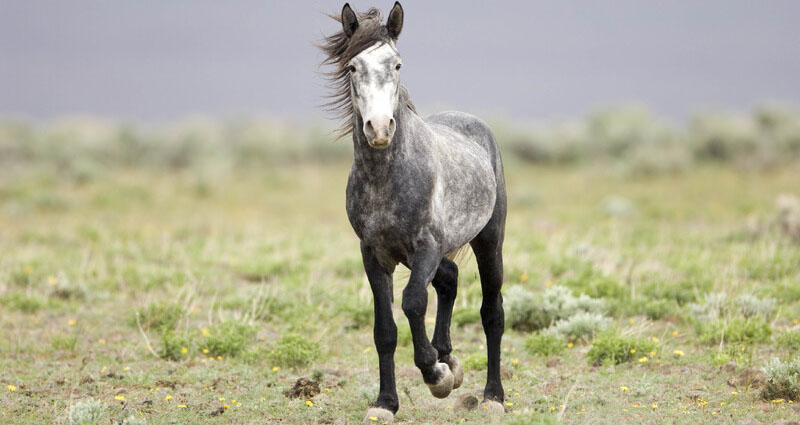Heat affects the speed of horses more than humans, University of Roehampton research reveals
- Tuesday, July 7, 2020
While top race horses can gallop nearly twice as fast as an Olympic sprinter, new research conducted by the University of Roehampton shows that in hot weather, the speed of a horse deteriorates more quickly than does that of a human being.

The research analysed the effect of ambient temperature on the running speeds of humans and horses in races where the two species were pitted directly against each other. Race times from three ‘Man v. Horse’ international races, held in the UK and USA, involving 260 humans and 358 horses with riders on courses of over 30 km in length were analysed. In addition to finish times, the researchers looked at ambient race-day temperatures from archived weather records at the nearest weather station of similar elevation.
For every 1ºC increase in ambient temperature on the day of a race, the pace of the horses decreased by on average 0.11 km/h and that of humans by 0.07 km/h - a 36% smaller decrease for humans. At the highest race day temperatures, the quickest human runners were nearly as fast as the quickest horses.
Professor Lewis Halsey from the University of Roehampton and his co-author on the study and independent researcher Dr Caleb Bryce, commenting on the findings from their work, said: “Horses have superior cardiovascular systems to humans so it is not surprising that they are typically faster than humans in a head-to-head race. Yet the time gap between the two closes on hotter days.
“This finding was sometimes subtle but always apparent in each of the three race events we analysed. In simple terms, humans sweat more readily so they have an in-built cooling system which mitigates the effect of the heat. Horses are bigger, and don’t dump heat as effectively.
“Although it’s a dying tradition, some human populations have hunted successfully by out-enduring their prey, running down large animals over the course of many hours in the heat of the day. It’s contentious as to whether humans are adapted specifically to do this, but the man versus horse data does suggest that humans are relatively well equipped to endure long-distance running at high temperatures.”
The full paper can be viewed here.
Our Department of Life Sciences is dedicated to understanding and improving the living world through ground-breaking advances in scientific research. You can find out more about the Department, including our wide rage of undergraduate and postgraduate degrees here.